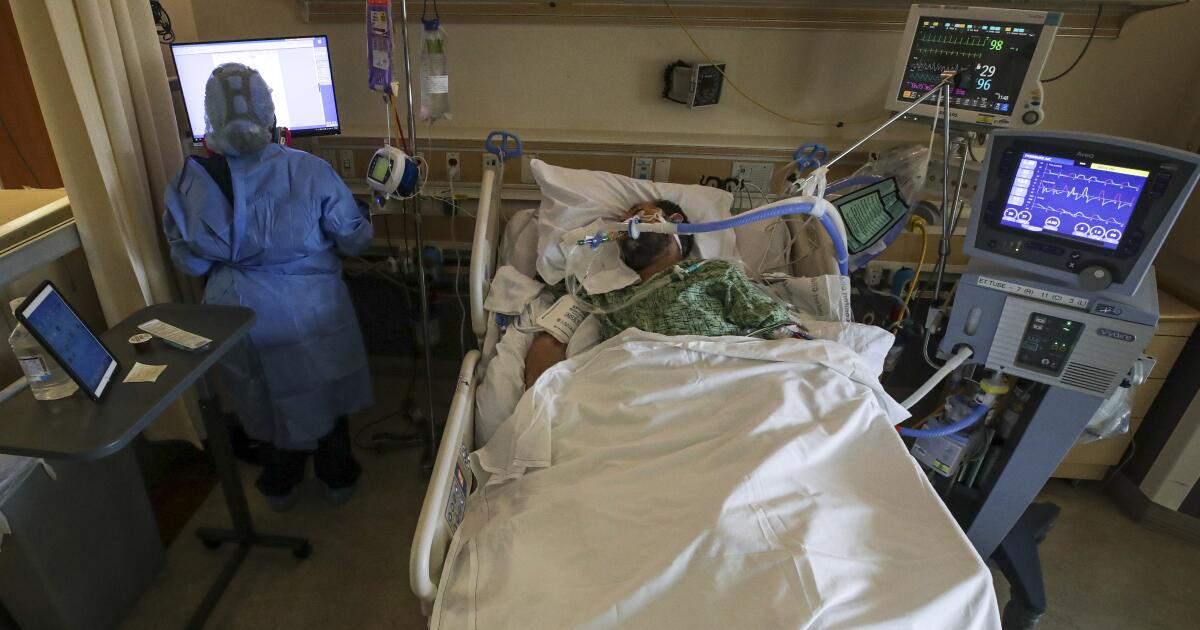Pennsylvania
For Republicans, victory in Pennsylvania will require focus, unity — and turnout
3-minute read
Kelly urges Republicans to get off the sidelines, vote
U.S. Rep. Mike Kelly, R-16th Dist., spoke to a group of GOP voters at a general election campaign kickoff event in Erie on April 24.
Recently, I attended my grade school reunion in South Philly — St. Monica, Class of …
A classmate, greeting me after decades of not seeing each other, said: “Hey Guy, do me a favor, please. Can you tell the Republicans to focus on winning?” (Nice to see you, too, Sal!)
If Donald Trump wins Pennsylvania, Joe Biden cannot be reelected. If Dave McCormick goes to the Senate, it’s no more Majority Leader Chuck Schumer. If Republicans can pick up just one more statehouse seat, they will recapture the majority in that body.
The threat of tripling taxes on small businesses will go away. Pennsylvania’s energy reserves will be put to the use of lowering prices, creating jobs, and reducing our dependence on foreign adversaries. More parents will get choices about where they can send their children to school.
So, yes, let’s focus on winning. The good news for the GOP is that most voters agree with us on most issues. The bad news: Democrats know how to change the subject, and they know how to play the election game. They’re better at getting their voters out to vote, especially by mail.
Because you asked, Sal, and because this is such a crucial election, here’s a roadmap to winning.
Unity. We must have unity — unity of purpose. We must agree that regardless who your most favorite or least favorite Republican is, and no matter what your number one issue is, Republicans need to focus on unity and growth. Now is not the time to focus on who doesn’t belong or who should be kicked out, taken out or ridiculed.
We must commit to stopping the harm that Democrats have caused, undoing the damage, and putting policies in place to bring down inflation and allow our children to get back to learning, in schools chosen by their parents. All are welcome, and we should reach out to everyone, especially minorities who have been ignored or taken for granted.
Mail-In Voting. Finally, GOP leaders across Pennsylvania — with support from those who helped Gov. Glen Youngkin in Virginia and donors across the nation — are committing to mail-in voting. The mailers are arriving. The ads are starting. Now it’s up to us.
Request your mail-in ballot. Vote by mail. Convince your friends to do the same. Unless we change our habits, we will probably lose. To say it again, if we carry Pennsylvania, the Biden damage to America and our communities ends, and good things can start happening again.
Republicans tried ignoring mail-in voting and complaining about it. The result: lots of L’s.
We should be guided by three principles: easy to vote; hard to cheat; and results we can trust. But we can’t make the necessary changes until we win.
Results We Can Trust. Yes, Republicans in each county should make sure that every county that has “drop boxes” has clear, publicized hours of operation, cameras and watchers on sight, and a written chain of custody for the collection, storage, and counting of ballots. Similarly, as Philadelphia and perhaps other counties open “satellite election offices,” citizens should demand that these de facto polling places have watchers present. And GOP “minority” commissioners must fulfill their duty as not only public servants, but also as watchdogs.
Learn from the Pros. Democrats in Philadelphia and across the state are using all the tools at their disposal — and inventing new ones — to increase turnout. More and more drop boxes. Satellite election offices. Voter registration drives run by the government in targeted communities or with targeted voters. Driving to voters’ homes to help them fix mail-in ballots that need signatures or dating to be lawfully counted.
Republicans have majority control in 54 out the state’s 67 counties. It’s time to learn the voting “game” from the Democrats while following the law. Adapt to the changing tactics. And win.
Drop Boxes. Yes, drop boxes. Many counties in Pennsylvania are large, with limited population spread out across their region. County commissioners ought to consider putting drop boxes in Amish communities, community colleges, the local Grange, farming supply centers, outside of popular churches — and yes, at gun ranges.
Satellite offices. We should have at least one satellite office in any region of a county that is not near the county courthouse.
Voter Registration Drives. Philadelphia plans to use taxpayer money to register voters in an effort to drive up votes for the Democrats. Well, two can play that game. Aside from having forms at the courthouse and library, how about the commissioners hosting a drive at an Amish Farm, at a gun range, outside an ROTC center, or at a local volunteer fire hall?
“Curing” Ballots. If Montgomery County Democratic commissioners follow through on their stated plans and let courthouse staff drive “flawed” mail-in ballots to voters’ homes so that they can fix them, then the 54 GOP-run counties should do the same.
Yes, elections are about winning the hearts and minds of voters. But they’re also about ballots.
Biden and his allies in D.C. and Harrisburg have brought us inflation, expensive gasoline, rising utility bills, increased violent crime in our cities reaching into the suburbs, an open and unsecured border, growing dependency on enemies for energy and weakness, death, and destruction around the world.
Republicans are winning the battle for hearts and minds. Now, let’s win the battle at the ballot box. Let’s unify — and use every legal tool at our disposal so that no GOP voter fails to vote.
Do it for Sal — and for all those who still believe the American Dream is worth fighting for.
Guy Ciarrocchi is a writer for RealClearPennsylvania and Broad+Liberty. He is also a senior fellow at the Commonwealth Foundation. The views expressed may not necessarily reflect the views of these organizations. Follow Guy at @PaSuburbsGuy.

Pennsylvania
40% of US lithium needs could come from unlikely source in Pennsylvania

Thanks to the increase of electric vehicles and other battery-using technologies, the demand for lithium is expected to skyrocket in the coming years. One odd but potent source of the metal is a Pennsylvania wastewater stream, says a new study.
As we’ve reported previously, based on current demand, the world is going to need about 59 new lithium mines hauling out 45,000 tonnes of the metal by 2035. The silvery metal is a key component of rechargeable batteries which are powering seemingly everything these days from countertop ice cube makers to freight ships.
Due to the growing demand for lithium, researchers are developing quicker ways to harvest it from the brine pits which, along with more traditional mines, are a primary source of the element. They are also looking in other places for sources of the material.
One of those places is a wastewater stream produced as a result of a fracking operation outside of Pittsburgh, Pennsylvania. There, operators of the Marcellus shale gas wells need to report levels of certain materials in the wastewater to regulators. Because the reports must mention lithium levels, researchers from the University of Pittsburgh were able to conduct an analysis that showed that if a technique could be developed that would remove 100% of the lithium from the wastewater, about 40% of America’s demand for the metal could be met.
Currently, lithium can be removed from water with an efficiency rate of more than 90%, so the goal is not too far away.
And while the wastewater at these particular fracking mines is rich in lithium, they are not the only sources of Marcellus shale in the country. West Virginia could also be a rich source, say the researchers.
Because the US Geological survey has classified lithium as a critical mineral (technically an element), the government wants all lithium produced domestically by 2030. In terms of resource allocation, that would be an improvement over the current method which consists of extracting it from brine ponds in Chile, shipping it to China to be processed, and shipping it back to the States for use.
The next step for exploring the wastewater stream as a source of lithium is to analyze the environmental impacts of extracting it and to build a pilot plant to research and develop more efficient extraction techniques.
“Wastewater from oil and gas is a burgeoning issue,” says study lead author Justin Mackey. “Right now, it’s just minimally treated and reinjected.” However, he adds that developing better extraction techniques could provide serious value in turning a wastewater into something much more valuable. “It’s been dissolving rocks for hundreds of millions of years – essentially, the water has been mining the subsurface,” he says.
A paper about the finding has been published in the journal Scientific Reports.
Source: University of Pittsburgh
Pennsylvania
Millions in PA dairy farmer aid proposed to cut insurance costs

This story was produced by the State College regional bureau of Spotlight PA, an independent, nonpartisan newsroom dedicated to investigative and public-service journalism for Pennsylvania. Sign up for our north-central Pa. newsletter, Talk of the Town, at spotlightpa.org/newsletters/talkofthetown.
BELLEFONTE — As part of his administration’s efforts to bolster the agriculture industry through state spending, Democratic Gov. Josh Shapiro wants to use millions of dollars to connect more Pennsylvania farmers to a federal dairy program.
The governor’s budget pitch includes $5.6 million to create a state subsidy that would lessen sign-up costs for the federal Dairy Margin Coverage Protection Program, which gives farmers direct payments to help them deal with volatile milk and feed prices.
The dairy industry requires a large amount of initial capital investment, and there’s no guarantee that market prices will stay the same each month, so making a profit is difficult, said Jayne Sebright, executive director of Pennsylvania’s Center for Dairy Excellence. The center operates within the state Department of Agriculture.
William Thiele, a sixth-generation dairy farmer in Butler County, equated the price fluctuations to riding a roller coaster. He signed up for the federal program — which works like an insurance plan — to curb some risks.
Funded by the federal Farm Bill in 2018, the program pays farmers when the difference between the national milk price and the average feed cost falls below a certain threshold.
Coverage levels range from $4 to $9.50 per 100 pounds of milk. The most basic protection is free except for a $100 administrative fee required for all participants.
Yearly premiums can range between $118 and $7,000, depending on various factors — like the coverage level and what percentage of coverage participants want.
In such a shifting market, costs deter participation, Sebright said.
“It’s a tight business we’re in,” Ed Hartman, a dairy farmer with operations in Berks and Lancaster Counties, told Spotlight PA. “You have to watch every dollar.”
Some farmers choose not to participate because they don’t want government support, Thiele said. Others might not know it exists, he added.
Pennsylvania has 4,940 dairy farms, according to state data. Of those, 1,778 are enrolled in the federal program, which made $102 million in payments statewide last year.
Christopher Allen Wolf, an agricultural economics professor at Cornell University, said participation in the federal program offers farmers, especially smaller ones, a safe way to reduce risks.
“Our hope is that by sharing the costs, more dairy farmers will take advantage of the federal program,” Shannon Powers, a Pennsylvania Department of Agriculture spokesperson, told Spotlight PA.
Minnesota incentivizes participation through its Dairy Assistance, Investment, Relief Initiative. The state’s $8 million program, launched in 2019, made payments to operations that produced less than 16 million pounds of milk and enrolled for five years of federal coverage.
Before DAIRI, low milk prices and high feed costs had the dairy industry in crisis, said Paul Hugunin, a division director at the Minnesota Department of Agriculture.
The state subsidy, Hugunin said, was a way to give farmers direct cash with long-term benefits. Since 2020, Minnesota has received more than $245 million in federal dairy margin coverage payments.
“We got a heck of a deal for $8 million,” Hugunin said.
State Reps. Emily Kinkead (D., Allegheny) and Marci Mustello (R., Butler) are using Minnesota as a model as they craft legislation that would enable the governor’s pitch.
“There’s no sense in trying to reinvent the wheel,” Kinkead told Spotlight PA.
The 2018 Farm Bill expired in December, but after Congress couldn’t agree on an updated version, lawmakers extended the provisions through the rest of 2024. Any legislation creating a subsidy in Pennsylvania would apply to future dairy margin coverage cycles, Mustello said.
Agriculture investments have received bipartisan support in the General Assembly, but total spending faces an uphill legislative battle. Republicans, including those who control the state Senate, say the governor’s overall proposed budget is fiscally irresponsible.
State Sen. Elder Vogel (R., Beaver), who chairs his chamber’s Agriculture and Rural Affairs Committee, said the proposed agriculture spending, $599 million total, is “a pretty fair budget.” Vogel, also a dairy farmer, told Spotlight PA he supports efforts to stabilize his industry amid fluctuating prices.
Along with the proposed subsidy program, Shapiro wants to use a portion of the $5.6 million to create a specialist position in the state Department of Agriculture that would advocate for the industry and its farmers.
State Rep. Dan Moul (R., Adams) previously told Spotlight PA he wasn’t convinced all of the proposed investments were necessary, including the subsidy program, a $10.3 million grant program for innovation, and additional staffing for the agriculture department. He’d rather see money go toward expanding farmers’ access to broadband.
SUPPORT THIS JOURNALISM and help us reinvigorate local news in north-central Pennsylvania at spotlightpa.org/donate/statecollege. Spotlight PA is funded by foundations and readers like you who are committed to accountability and public-service journalism that gets results.
Pennsylvania
Pennsylvania’s mandatory life sentence for 2nd-degree murder denies redemption, former inmate says

PITTSBURGH (KDKA) — As a young man on the streets of Homewood, Robby Wideman was bound for trouble. At just 24, he got involved in a robbery gone wrong. Things went south when his accomplice shot and killed the victim, and Wideman went to prison for life without the possibility of parole, even though he didn’t pull the trigger.
“I was involved in a man getting killed. I didn’t kill him. Didn’t expect it to happen. I was in that lifestyle. So, I don’t say, ‘oh, I should have never went to prison.’ Yeah, I should went to prison for what I did, but for life?” he said.
Like more than 1,000 other state inmates serving life for second-degree murder, Wideman was given a future without hope. Opponents call it death by incarceration — a punishment both cruel and unusual and a violation of both the state and U.S. constitutions, denying an inmate any chance of redemption.
“It discourages a man from trying to change almost. I know you can understand that. In some way it makes sense. Why should I? You tell me I’m never going home,” Wideman said.
But now the state Supreme Court will hear the case that may change that. This fall, it will take up the sentencing of another local young man involved in a similar robbery gone bad.
Even though Derek Lee did not pull the trigger in a homicide in the city’s West End ten years ago, he’s serving mandatory life. His attorneys are asking the courts to declare the sentence unconstitutional, allow Lee to be re-sentenced and open the door for others.
Wideman says not only would the state save about $50,000 a year for housing each inmate, communities would benefit from the re-entry of reformed inmates.
“If the court overturns second-degree murder and quits putting people in prison who didn’t kill anyone, society is going to win,” Wideman said.
Even though he had no chance at freedom, Wideman did change for the good. In prison, he quit drugs and alcohol, became a counselor to other inmates and earned a degree. His struggle became the subject of the book “Brothers and Keepers” — a memoir by his brother John Edgar Wideman, the nationally renowned Pittsburgh novelist. Finally, after 44 years in prison, then-Gov. Tom Wolf commuted Wideman’s sentence.
Today, Wideman runs a three-quarter house for former inmates, giving them a place to live, job training and the support they need to re-enter society. Wideman says he is dedicating the rest of his life to using his hard-won experience and wisdom to help others. His hope is that lifers like him will someday get parole and join the others.
“Trying to help people. For me, that’s what it’s about. That’s what it’s about. I made a promise to the guys that I left behind that I would and I’m trying my best to hold up my word,” he said.
This case is expected to go in front of the state Supreme Court in October, but Gov. Josh Shapiro has already weighed in, filing a surprise brief asking the court to declare these mandatory sentences unconstitutional.
-

 Politics1 week ago
Politics1 week agoHouse Dems seeking re-election seemingly reverse course, call on Biden to 'bring order to the southern border'
-

 World1 week ago
World1 week agoStand-in Jose Raul Mulino wins Panama presidential race
-

 News1 week ago
News1 week agoCompass Direct LLC’s 2024 Registration in North Carolina
-

 World1 week ago
World1 week agoTech compliance reports, Newsletter
-

 News1 week ago
News1 week agoColumbia University cancels its main commencement ceremony after weeks of turmoil
-

 News1 week ago
News1 week agoMan, 75, confesses to killing wife in hospital because he couldn’t afford her care, court documents say
-
News1 week ago
UCLA to resume in-person classes after Gaza protest crackdown
-

 World1 week ago
World1 week agoPentagon chief confirms US pause on weapons shipment to Israel






















